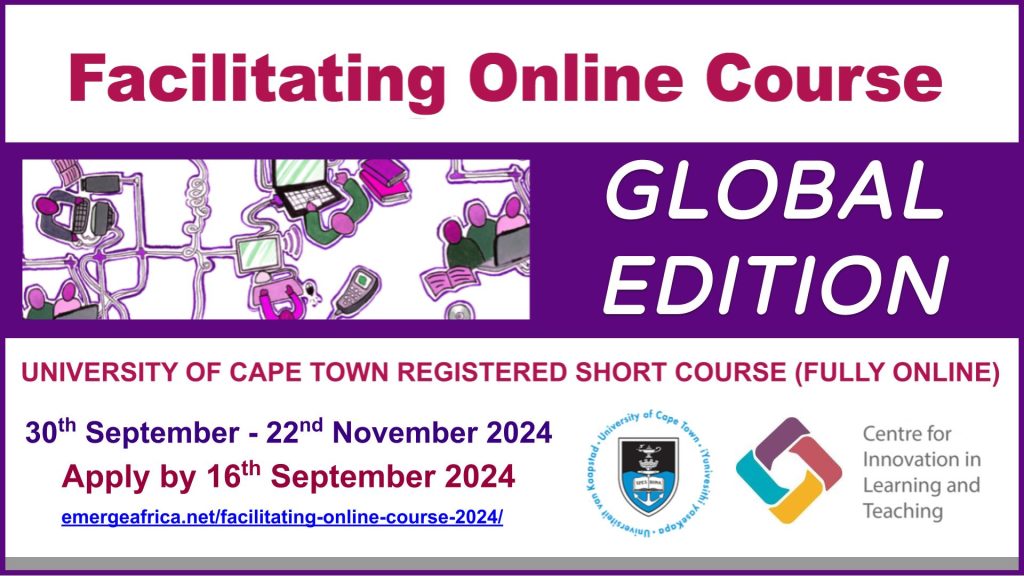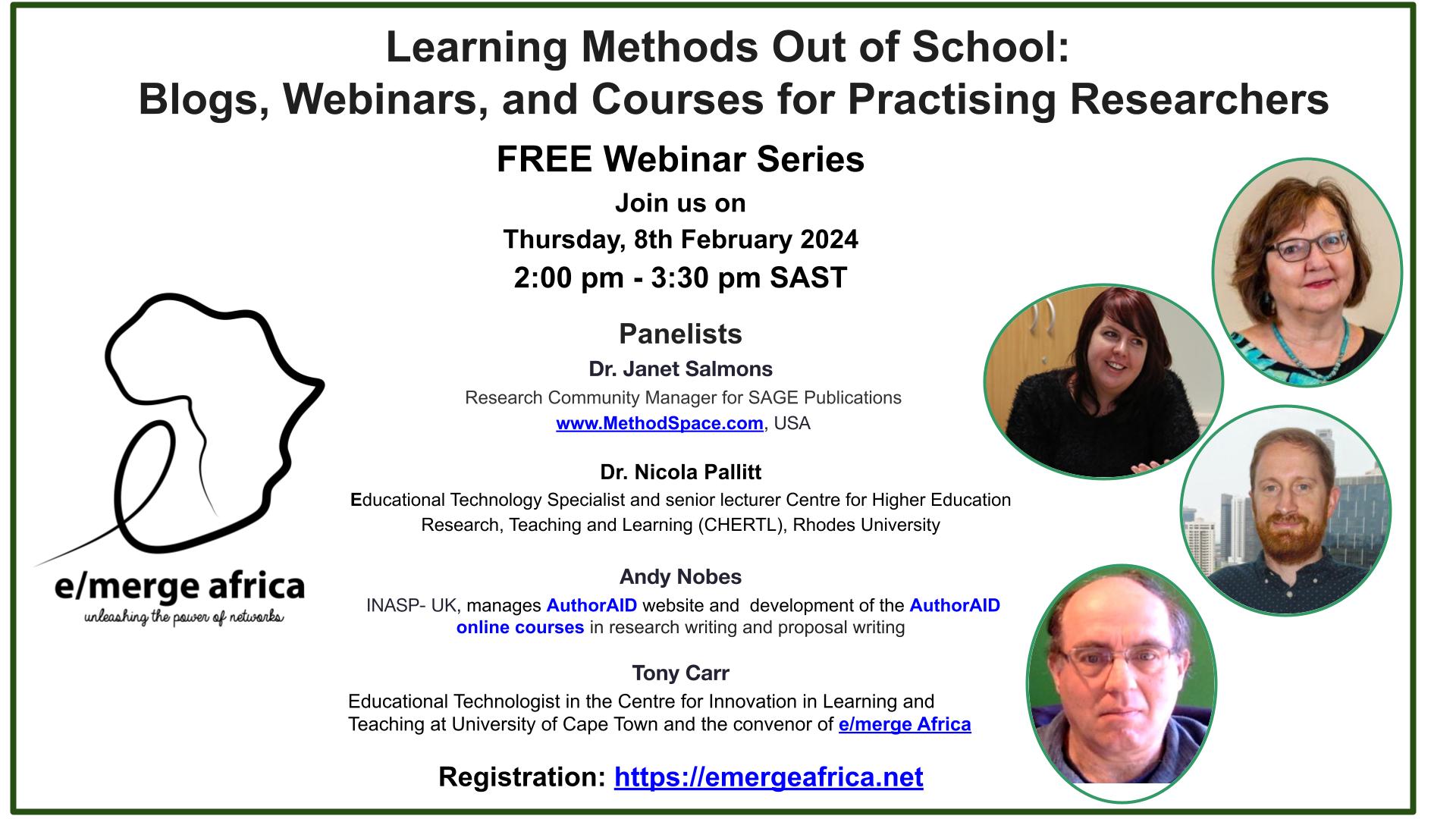
Please notice we will not be offering the Facilitating Online course in 2025. Please look out for a future re-iteration to be offered by our colleagues at the Centre for Innovation in Learning and Teaching (CILT) in 2026.
About the course
Facilitating Online provides a solid foundation for facilitating online events and courses. It is registered as a short course at the University of Cape Town (UCT). Facilitating Online was developed by the Centre for Innovation in Learning and Teaching (CILT) at UCT. It is convened by Tony Carr and co-facilitated by facilitators from across Africa. The course is run online over 8 weeks.
We consider applications in the order in which they arrive so earlier applications stand a higher chance of being accepted
Recommendations by participants
“I learned many facilitation skills that I am now able to apply with my own students. I would recommend the course highly to anyone embarking on the online teaching and learning journey.”
Dr Judith McKenzie, Department of Health and Rehabilitation Sciences, University of Cape Town.
“This course doesn’t just teach you ABOUT online Facilitation, it actually gets you to facilitate … It’s a real opportunity to learn and develop. And what’s more? It has an African taste…”
Daniel Adeboye, Online Maths Tutor, Tutor for the Future
Who should apply and why?
Educators and trainers are increasingly using online resources and interaction to support learning across blended and online courses. The shift online emphasises the importance of sound online facilitation skills to facilitate engaged participants in debate, group work and shared knowledge construction across a range of online conversational spaces.
Trained online facilitators are also able to make good choices about the use of online communication when designing learning activities. Facilitating Online provides opportunities for educational technologists, educators and trainers to develop the necessary orientation to become an effective online facilitator. Several past participants have reported that Facilitating Online unlocked new employment opportunities for them.
This course is aimed at change agent educational technologists and educators as well as trainers involved in leading online courses. Course participation is entirely online and will require up to 8 hours of participation per week. A certificate of completion is awarded for successful completion of 75% of the assessed activities of the course including some mandatory activities.
Selection criteria and process
Selection criteria include:
* reliable Internet access
* an opportunity to teach or facilitate in a blended or online course or training programme
* previous experience of online teaching or learning
* at least two years’ experience as a university educator, educational technologist or trainer
All applicants will require a letter of support from their line manager or Head of Department.
Applicants will be notified via email about whether they have been selected to participate in the course. You can address any other queries to [email protected]
Promotional Course Fees
South Africans: R9000
Rest of Africa: R7500
Rest of the World: R9000
Discounts will be available for groups of more than 5 participants
For interest:
- The original version of the guidance to course leaders is available as an open educational resource.
- Watch a recording of ‘The Human in the Web Space’ online seminar led by Catherine Fortune (South Africa) and Irene Maweu (Kenya)

